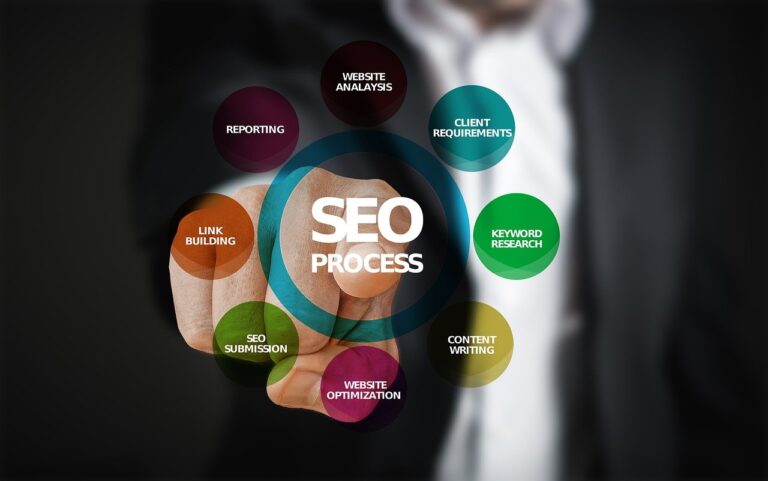Let’s start by defining search engine optimisation. SEO is the process of making a website more search engine friendly so that these engines can better understand it in an easy, simple way. SEO is known as the process of enhancing the visibility of a site or blog in the organic results of search engines.
SEO is also the position of a person which works to improve search engine positioning and SEO is a job as well, for instance, you can see jobs as SEO to improve companies’ websites. Companies and webmasters began to think how they could reach the first position, attract more people to their website and their services, and that is when SEO was born!
SEO is one of the “disciplines” that has developed and changed the most in recent years. The first search engines emerged in the early 90s. When Google appeared in 1996, many were search engines were created after, including Yahoo!. It was in the 2000 when the Web boom began, and they started to become more and more popular among internet users in those times. Until the first search engines appeared in the early 1990s, the only way to find information on the Internet was by typing the address of the page in the browser or searching in directories.
When internet and laptops became to be accessible to everybody, websites realized that they could earn money from their websites traffics. So that websites started to be interested in adding traffic to their websites and started to do SEO campaigns.
The most important nowadays is the position where a website is located on the search engine, thus it can have a lot of visibility for the users. Although there are thousands of factors that a search engine relies on to position one page or another, it could be said that there are two basic factors: authority and relevance.
Authority is basically the popularity of a website. The more popular it is, the more valuable the information it contains. This factor is the main one that basically a search engine takes more into account since it is based on the user’s own experience. The more content is shared, the more users will find it and will get access to it.
Relevance is the relationship a page has to a given search. This is not simply that a page contains a lot of times the search term (in the beginning it was like that) but that a search engine relies on hundreds of on-site factors to determine this.
Improvement and enhancements of on-page factors
When applying SEO to a website, we are applying some type of marketing techniques translated to computers to the website. That is, Search engine optimization (SEO) often involves making small changes to different parts of a website. When you look at them one by one, these changes can seem like tiny improvements; however, when combined with other optimizations, they can have a significant impact on the user experience and performance of a site in organic search results.
A key aspect to keep in mind is the design of your site. You need to keep into consideration your users because you need to see the site itself as an actual user, and the objective need to be to enhance the whole experience, the pieces of content, all the information, images, etc. You need to try to display as much as information as possible and in a clear way.
Bear in mind that most of the users will land in your site after a quick search on a search engine like Google. SEO is also about making it easier for the search engines to find your website. Search engine optimisation focuses on organic results, this means the results that are not paid to show up on the results of a search engine.
Google search engines and SEO techniques
Google is the most used search engine at the moment to find different websites online. Therefore, it is so important nowadays to use trustworthy SEO techniques in order to have a good position in Google. Even though, it is recommended that webmasters and companies also should work in improving their results in other search engines such as Bing! and not only in Google in the long term.
What do you need to do to include your site in the results of Google? It is a simple process. It is actually very simple and free. Google is a completely automated engine that utilises web crawlers or bot spiders to scan the Internet all the time looking for new sites to be added to their index. As a matter of fact, pretty much most of the sites that appear in their results are actually not submitted manually, they are just automatically identified and included to the searched because Google has an algorithm that takes care of it.
But how can you know if you are in Google?
One of the very first aspects you need to take care of in order to know understand your site is present in the Google index is to simply search your website’s URL within the search bar with the search operator “site:”. If anything from your site appears, then this means that your site is indexed.
But it can also happen that for some reason your site is not in the Google’s index. Although Google crawls billions of pages, it is inevitable that some websites will be left. When our crawlers ignore a site, it is usually for one of these reasons stated by Google in its guides:
- The website is not well linked to other sites on the web.
- The website has just been published and has not been crawled by Google yet.
- The design of the website does not allow Google to track its content effectively.
- Google has received an error trying to crawl the website.
- The website policy prevents Google from tracking it.
Google uses the different process to track your website:
Index: Google indexes all the web pages it knows about. The index entry for a page describes the content and location (URL) of the page in question. Indexing – Getting, reading, and adding a page to the index: Google indexed multiple pages on my website today.
Crawl: process of searching for new or updated web pages. Google discovers URLs by following links, reading sitemaps, and in many other ways. Google crawls the web to find new pages and, once found, indexes them (if applicable).
Crawler – automated software that crawls (retrieves) web pages and indexes them.
Google robot: generic name of the Google crawler. The Googlebot constantly crawls the web.
Why is SEO so important?
The most important reason why SEO is necessary is because it makes your website more useful to both users and search engines. Although, search engines cannot see a web page like a human does, SEO is necessary to help search engines understand what each page is about and whether or not it is useful to users. Competition on Google is fierce, and the difference between your website appearing on the first page or being lost in the vastness of internet is abysmal.
Even more now that we have e-commerce boom in the last decade, and people is buying online more and more. Having a good position in the search engine can make your company be accessible to more potential clients, users, and to sell more products.


Comments are closed.